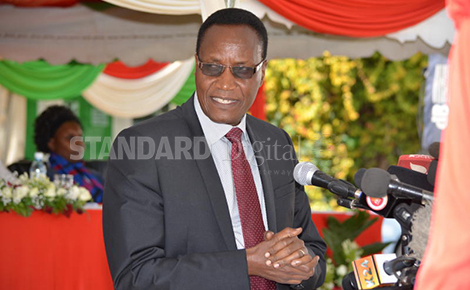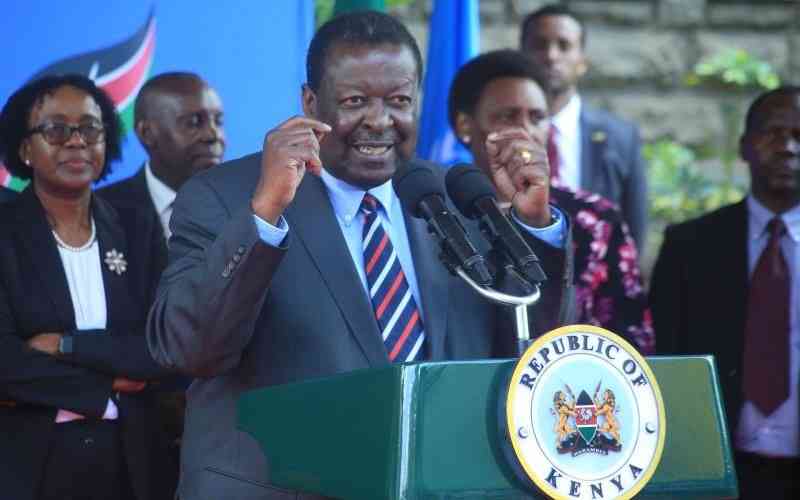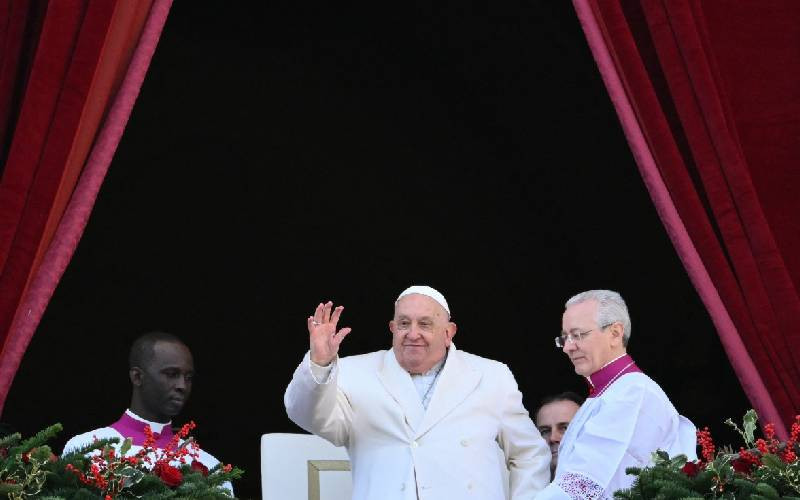 |
|
Education Cabinet secretary Jacob Kaimenyi |
NAIROBI: The New Year begins with heightened activity in the education sector amid a looming teacher’s strike, debate over the ban on schools ranking in national examinations and yet to be implemented proposal on reduced school fees.
For parents of millions of children in public secondary schools, the hope of paying lower fees in 2015 appears to have been deferred, at least for now, after the Ministry of Education directed schools to stick to fee guidelines issued in 2013.
A 27-member task-force formed to review the cost of secondary education proposed a drastic cut in the current fees, but it appears modalities of implementing such measures are yet to be worked out.
The task-force, led by former assistant Minister of Education, Dr Kilemi Mwiria, presented its report to President Uhuru Kenyatta in October last year.
The team proposed that students in boarding schools pay an annual fee of Sh38,969, those in day-schools Sh11,105 while students in Special Needs Education schools, would part with Sh22,830 annually.
The proposed figures were arrived at through computation on the basis of ‘realistic unit costs for secondary schools’ with regard to expenses of food, repairs, maintenance and transport. Currently, some boarding schools charge as much as Sh100,000, per year, with day schools charging nearly double the amount proposed by the task-force.
According to the team’s survey, the ‘realistic cost,’ for instance, of teaching and learning materials for day and boarding schools would be Sh4,792 each, per year. Similar costs for Special Needs schools stand at Sh9,067.
Boarding, equipment, stores and meals (lunch for day schools) is put at Sh5,861 for day schools, Sh24,721 for boarding schools and Sh24,721 for Special Needs schools. Electricity, water and conservancy was pegged at Sh2,405 for day schools, Sh5,956 for boarding schools and Sh3,089 for Special Needs schools, while transport Sh1,399, Sh1,848 and Sh1,637 for each category of schools, respectively.
The proposed figures elicited debate among stakeholders who questioned how they would be implemented and still maintain quality standards of education in the public institutions.
In a circular dated December 18, last year, Education Cabinet Secretary Jacob Kaimenyi directs school heads to stick to the fee guidelines earlier issued by the ministry and warns school heads against increasing fee.
Headteachers, he said, have no justification to increase fees since the Government had increased the capitation grant per student from Sh10,265 to Sh12, 870. The circular also makes note of the Government’s intention to fulfill its promise to meet the cost of national examinations starting January 2015.
Kenya Secondary Schools Head Teachers Association chair John Awiti, says there should be no confusion over what parents should be paying since the circular issued by the Education Ministry was clear.
He says proposals made by the task-force involve a lot of work that will require consultations between the Government and stakeholders in the education sector and may, therefore, take time to be implemented.
“There are huge amounts of money involved, for instance, on the issue of Government increasing its capitation funds that would require it to reorganise itself. Proposals like banning the ranking of schools in national examinations, for instance, which has no financial implications, could be effected immediately,” he says.
Kuppet Secretary General Akelo Misori, says the ministry’s directive proves that the taskforce's proposals were ‘populist’ and not clearly implementable. “There were no timelines given on how the drastic reduction in fees could be achieved. There also seemed to be no proper understanding of how schools with a lot of staff and infrastructure will be maintained on the proposed figures,” he says.
Stay informed. Subscribe to our newsletter
 The Standard Group Plc is a
multi-media organization with investments in media platforms spanning newspaper
print operations, television, radio broadcasting, digital and online services. The
Standard Group is recognized as a leading multi-media house in Kenya with a key
influence in matters of national and international interest.
The Standard Group Plc is a
multi-media organization with investments in media platforms spanning newspaper
print operations, television, radio broadcasting, digital and online services. The
Standard Group is recognized as a leading multi-media house in Kenya with a key
influence in matters of national and international interest.
 The Standard Group Plc is a
multi-media organization with investments in media platforms spanning newspaper
print operations, television, radio broadcasting, digital and online services. The
Standard Group is recognized as a leading multi-media house in Kenya with a key
influence in matters of national and international interest.
The Standard Group Plc is a
multi-media organization with investments in media platforms spanning newspaper
print operations, television, radio broadcasting, digital and online services. The
Standard Group is recognized as a leading multi-media house in Kenya with a key
influence in matters of national and international interest.









